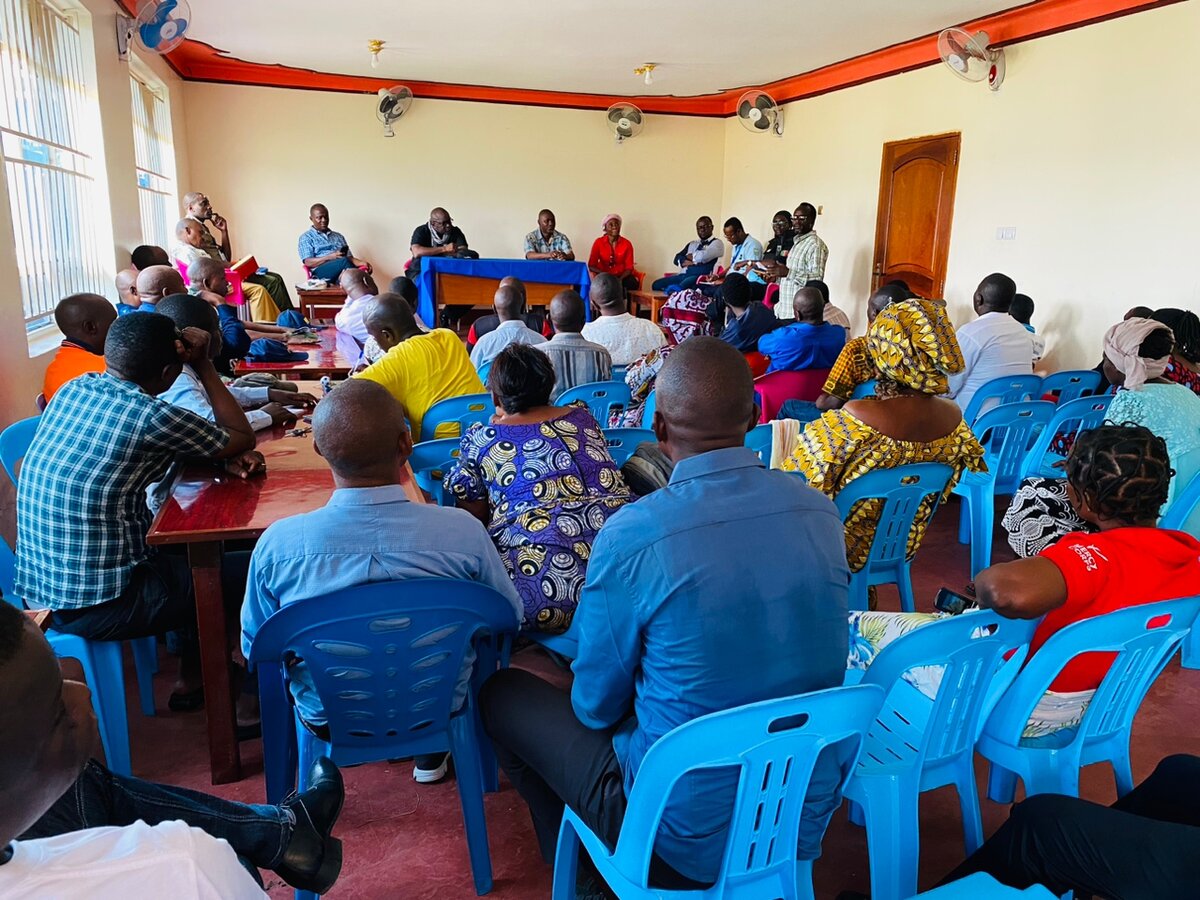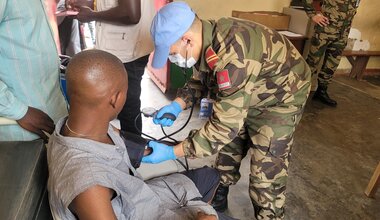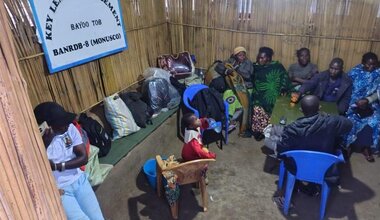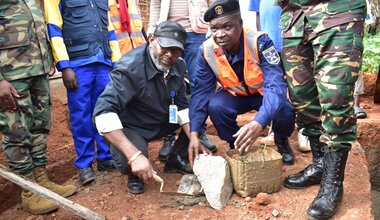Ituri: MONUCO Explains its Transition Plan to the Populations in Kasenyi and Tchomia
To collect the expectations and concerns from the local populations about the process for MONUSCO’s exit from the DRC, a delegation from the UN Mission travelled to the localities of Kasenyi and Tchomia, located respectively 55 and 62 kilometers from Bunia in the Lake Albert plain, Ituri province, on January 24.
Led by Karna Soro, the head of MONUSCO Bunia office, the delegation met with local authorities, including the sector chief of Bahema Sud, the administrative secretary of Bahema Banywagi, civil society actors, customary authorities as well as Congolese military and police senior officials.
MONUSCO’s intent was to listen to the expectations of all these stakeholders regarding the process on its withdrawal from the DRC. It wanted to hear their concerns over its transition plan.
MONUSCO explained this plan, which is based on 18 milestones. The chief of office stressed that the tasks which are devolved today to the Mission, should gradually and responsibly be transferred to the DRC Government and its partners.
Several other issues were also reviewed during this meeting. The chiefs of the different localities raised the issue of the thousands of internally displaced people who fled their villages following attacks perpetrated by the CODECO militia. “many families live in unprecedented precariousness,” they said.

According to the local leaders, the displaced persons have been living without humanitarian assistance for several months. A situation that generates and causes several anti-values, including the prostitution of the under-aged, and the organization of early marriages, they underline.
Local authorities expressed the hope to see the United Nations Mission strengthen its presence and provide more support to the national army engaged at the front so that they can together put an end to the armed groups’ activism. This could facilitate the return of the displaced families to their villages where they can resume their activities and live a normal life as in the past.
Civil society, for its part, requested MONUSCO to advocate for support from the relevant authorities so that the living conditions of these vulnerable people improve. Local civil society leaders asked the Head of Office to advocate with MONUSCO so that it could initiate community projects (quick impact projects) to relieve the population impoverished by the armed groups’ activism.
Justice issue was also raised. The active stakeholders in the Ituri province would like to see the negative forces who have decimated hundreds families for decades to answer for their actions before the courts and tribunals and be subjected to the full force of the law.
MONUSCO head of office pledged not only to channel these requests to the Mission's leadership but also to engage in discussions with the heads of United Nations system agencies to examine what can be done in emergency.
Karna Soro requested the various members of the community to sensitize young people to surrender their weapons as the disarmament, demobilization, community reintegration and stabilization (PDDRC-S) program will start in this province shortly.
 UN
UN United Nations Peacekeeping
United Nations Peacekeeping






